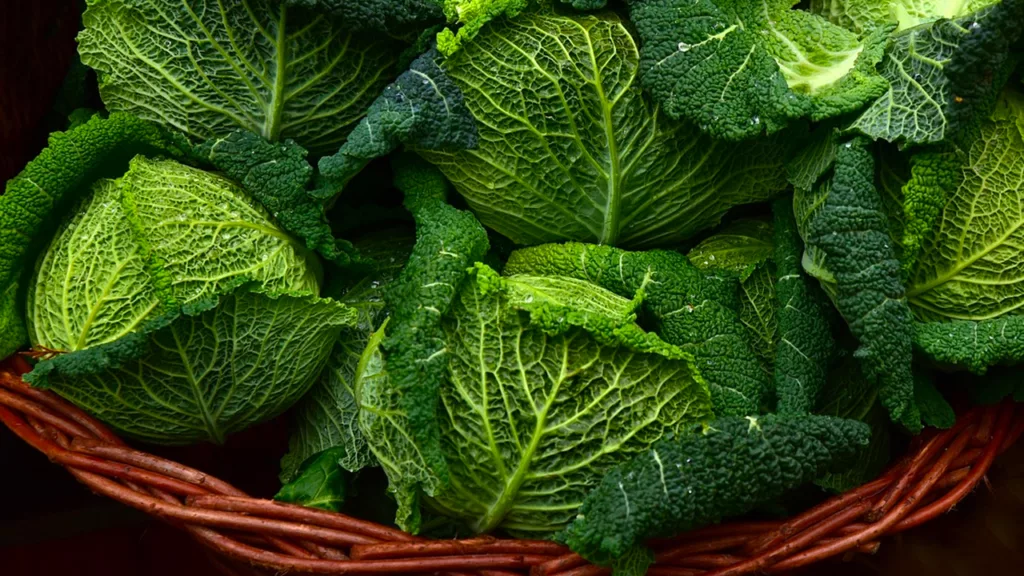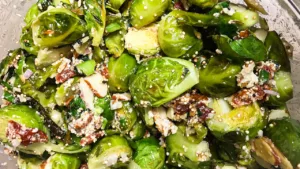As a vegan, ensuring you get all the necessary vitamins and minerals from your diet is crucial. One of these essential nutrients is Vitamin B2, also known as riboflavin. This important vitamin plays a vital role in maintaining a healthy metabolism, aiding in energy production, and supporting healthy skin and eyes. Fortunately, there are numerous vegan sources of Vitamin B2 that you can incorporate into your diet to meet your daily needs.
Understanding the Importance of Vitamin B2
Vitamin B2, or riboflavin, is a water-soluble vitamin that plays several critical roles in the body. It is involved in:
- Energy Production: Riboflavin is essential for breaking down carbohydrates, proteins, and fats to produce energy.
- Cellular Function: It supports the growth and function of cells and helps in the development of red blood cells.
- Skin and Eye Health: Riboflavin is vital for maintaining healthy skin and proper eye function.
- Antioxidant Protection: It helps protect the body from oxidative stress by contributing to the regeneration of glutathione, a key antioxidant.
A deficiency in riboflavin can lead to several health issues, including sore throat, inflammation of the mouth, cracked lips, hair loss, skin disorders, eye fatigue, and anemia. Ensuring an adequate intake of riboflavin is crucial, especially for those following a vegan or plant-based diet.
This table provides a list of the top 20 vegan sources of Vitamin B2, along with their B2 content per 100g of food. Incorporating these foods into your diet can help ensure that you meet your daily Vitamin B2 requirements.
Top 20 Vegan Sources of Vitamin B2
Below is a table listing the top 20 vegan sources of Vitamin B2 along with their B2 content per 100 grams of food. Incorporating these foods into your diet can help ensure you meet your daily Vitamin B2 requirements.
| Food | Vitamin B2 content (mg/100g) |
|---|---|
| Yeast extract spread | 2.7 |
| Almonds | 1.2 |
| Soybeans | 0.45 |
| Mushrooms | 0.5 |
| Spinach | 0.4 |
| Asparagus | 0.15 |
| Artichokes | 0.14 |
| Tofu | 0.13 |
| Broccoli | 0.11 |
| Buckwheat | 0.1 |
| Quinoa | 0.09 |
| Oats | 0.6 |
| Brussels sprouts | 0.09 |
| Sweet potatoes | 0.07 |
| Avocado | 0.06 |
| Brown rice | 0.05 |
| Tempeh | 0.05 |
| Kale | 0.05 |
| Raisins | 0.05 |
| Tomatoes | 0.04 |
Leafy Green Vegetables
Green leafy vegetables are excellent sources of Vitamin B2. Foods like spinach, collard greens, kale, and Swiss chard are not only packed with this nutrient but also with other essential vitamins and minerals. You can add leafy greens to your smoothies, salads, soups, or stir-fries. These foods also offer other B vitamins, making them an integral part of a well-rounded, plant-based diet.
Mushrooms
Mushrooms are not only a delicious addition to many dishes but also a great source of Vitamin B2. Portobello, shiitake, and cremini mushrooms are some of the best sources of this vitamin. You can incorporate them into your diet by adding them to pasta dishes, stir-fries, and soups. White mushrooms are particularly notable for their riboflavin content.
Nuts and Seeds
Nuts and seeds are excellent sources of many essential vitamins and minerals, including Vitamin B2. Almonds, sunflower seeds, and sesame seeds are particularly high in this nutrient. You can incorporate them into your diet by snacking on them, or by adding them to your oatmeal, smoothies, or salads. These foods also provide healthy fatty acids and protein, making them a versatile addition to vegetarian diets.
Fortified Foods
Many plant-based milk alternatives, such as soy or almond milk, are fortified with Vitamin B2. Other fortified foods include breakfast cereals and nutritional yeast. Nutritional yeast is a particularly good source of Vitamin B2 and can be added to your dishes for a cheesy, nutty flavor. Fortified plant milks and cereals help ensure you get enough Vitamin B2 and other essential nutrients.
Whole Grains
Whole grains such as oats, quinoa, and brown rice are good sources of Vitamin B2. Incorporating these grains into your meals can boost your riboflavin intake. They are also rich in other nutrients and fiber, making them beneficial for overall health.
Legumes
Legumes like beans, lentils, and chickpeas are not only rich in protein but also provide a decent amount of riboflavin. They can be easily added to soups, stews, salads, and various other dishes.
Vegetables
Apart from leafy greens, vegetables like broccoli, Brussels sprouts, and sweet potatoes also contribute to your daily riboflavin needs. These vegetables are versatile and can be included in a variety of meals.
Fruits
While not as rich in Vitamin B2 as other foods, fruits like avocados and tomatoes can still add to your overall intake when consumed regularly. They are also packed with other vitamins and antioxidants.
Importance of Vitamin B2 in a Vegan Diet
It’s very important to get enough vitamin B in your daily diet. Ensuring an adequate intake of riboflavin is crucial for vegans due to the following reasons:
- Energy Metabolism: Riboflavin is essential for the metabolism of fats, carbohydrates, and proteins, converting them into energy.
- Antioxidant Function: It helps protect cells from oxidative damage by regenerating glutathione, a powerful antioxidant.
- Red Blood Cell Production: Riboflavin is necessary for the production of red blood cells, which carry oxygen throughout the body.
- Skin and Eye Health: It supports the maintenance of healthy skin and proper eye function, preventing issues like dry skin and cataracts.
Symptoms of Riboflavin Deficiency
Riboflavin deficiency, though rare, can lead to several health issues. Symptoms include:
- Sore Throat: Persistent soreness and redness in the throat.
- Inflammation of the Mouth: Swelling and redness inside the mouth, particularly at the corners.
- Cracked Lips: Dry and cracked lips.
- Hair Loss: In severe cases, riboflavin deficiency can contribute to hair loss.
- Skin Disorders: Red, itchy, and inflamed skin.
- Eye Fatigue: Sensitivity to light and eye strain.
- Anemia: Due to the role of riboflavin in red blood cell production.
Meeting Your Daily Riboflavin Needs
The recommended daily allowance (RDA) for riboflavin varies by age, sex, and life stage. For most adults, the RDA is 1.1-1.3 mg per day. Pregnant and breastfeeding women may require higher amounts. To ensure you meet your daily riboflavin needs, incorporate a variety of the vegan sources listed above into your diet. Regularly consuming these foods will help maintain adequate riboflavin levels and support overall health.
How to Incorporate More Vitamin B2 into Your Diet
- Smoothies: Add spinach, kale, and fortified plant milks to your morning smoothie for a riboflavin boost.
- Salads: Top your salads with almonds, sunflower seeds, and a yeast extract spread for added flavor and nutrients.
- Stir-Fries: Include mushrooms, broccoli, and tofu in your stir-fries.
- Snacks: Keep a stash of almonds, raisins, and sunflower seeds for healthy snacking.
- Fortified Foods: Choose breakfast cereals and plant-based milks that are fortified with Vitamin B2.
Vegan Supplements
If you’re concerned about meeting your riboflavin needs through diet alone, consider taking a vegan supplement. Many multivitamins designed for vegans contain riboflavin, along with other essential nutrients like Vitamin B12, Vitamin D, and iron. Supplements can provide an extra layer of assurance that you are meeting your nutritional needs.
Sample Meal Plan for a Riboflavin-Rich Vegan Diet
Breakfast
- Smoothie: Blend spinach, kale, a banana, fortified almond milk, and a tablespoon of almond butter.
- Oatmeal: Cook oats with fortified soy milk and top with raisins and sunflower seeds.
Lunch
- Salad: A large salad with mixed greens, cherry tomatoes, avocado, and a sprinkle of nutritional yeast.
- Quinoa Bowl: Quinoa mixed with roasted vegetables like broccoli, Brussels sprouts, and sweet potatoes.
Dinner
- Stir-Fry: A stir-fry with tofu, mushrooms, spinach, and buckwheat noodles.
- Side: A side of steamed asparagus and a small portion of brown rice.
Snacks
- Nuts and Seeds: A handful of almonds and sunflower seeds.
- Fruit: Sliced avocado with a sprinkle of sea salt and lemon juice.
Plant-Based vs. Animal Products: Sources of Vitamin B2
Vitamin B2, also known as riboflavin, is one of the essential water-soluble vitamins that plays a crucial role in maintaining overall health. It plays an important role in energy production, cellular function, and the metabolism of fats, drugs, and steroids. Riboflavin also works as an antioxidant, helping to combat free radicals in the body. Understanding the differences between plant-based and animal product sources of vitamin B2 can help individuals make informed dietary choices, especially for those following vegan or vegetarian diets.
Animal Products: Rich Sources of Vitamin B2
Animal products are often considered some of the best sources of vitamin B2. Dairy products, red meat, eggs, and fish are particularly rich in riboflavin. For instance, a cup of cow’s milk or a serving of yogurt can provide a significant portion of the recommended daily intake. Other animal sources such as organ meats like liver and kidney, are exceptionally high in riboflavin, making them a great source of vitamin B for those following an omnivorous diet.
In addition to riboflavin, animal products often contain other essential nutrients like amino acids, vitamin C, pantothenic acid, and nicotinic acid (niacin), which collectively support overall health, including the nervous system. Despite these benefits, there are concerns about the adverse effects of consuming too much red meat, such as an increased risk of heart disease. Therefore, while animal foods can supply enough riboflavin, it is important to balance them with other nutrient-rich foods to avoid nutrient deficiencies and health issues.
Plant-Based Foods: Viable Sources of Vitamin B2
There is good news for those who prefer vegan foods. There are several plant-based sources of riboflavin and with careful planning, you can get enough B vitamins in your diet. While plant-based foods generally contain smaller amounts of riboflavin compared to animal-based foods, a well-planned diet can still provide enough vitamin B2. Whole foods such as almonds, spinach, mushrooms, and quinoa are good sources of riboflavin. Fortified cereals and plant-based milk alternatives also contribute to dietary intake, ensuring that vegans can achieve the recommended intakes. Certain brands of fortified nutritional yeast could be considered one of the best sources of vitamin B for vegans.
Certain foods like wheat germ, whole wheat flour, and organic fruits are not only rich in riboflavin but also packed with other vital nutrients like folic acid and iron, which are important for preventing deficiencies. Incorporating a variety of these foods can help mitigate the higher risk of low B vitamin levels commonly seen in vegan diets. Additionally, peanut butter, another plant-based food, provides a moderate amount of riboflavin along with healthy fats and proteins, making it a valuable addition to a vegan diet.
Breast Milk and Vitamin B2
Human milk is a vital source of essential nutrients for infants, including vitamins B such as riboflavin (B2). It contains small amounts of riboflavin, which plays an important role in the baby’s growth and development. Human milk also provides amino acids and other crucial nutrients that contribute to preventing conditions like thiamin deficiency and iron deficiency. According to the Journal of the American Dietetic Association (J Am Diet Assoc), breastfeeding offers significant health benefits for both infants and mothers, helping to ensure that infants receive a balanced intake of important vitamins and minerals necessary for healthy growth. For healthy people, human milk represents an optimal nutritional start in life.
Balancing Dietary Choices for Optimal Health
Whether one chooses an omnivorous or plant-based diet, it’s crucial to ensure a balanced intake of all essential nutrients, including riboflavin. A study design examining dietary patterns in the United States found that while omnivores often consume more riboflavin, vegans and vegetarians can achieve adequate levels through careful dietary planning and the inclusion of fortified foods.
For those who struggle to get enough riboflavin from food sources alone, nutritional supplements can be a viable option. However, it is always recommended to seek medical advice before starting any supplementation, as high doses of vitamins can sometimes lead to adverse effects.
Maintaining a diet rich in a variety of whole foods ensures that you get a balanced array of nutrients. For example, combining riboflavin-rich foods with those high in other B vitamins, such as thiamin and folic acid, supports overall health and helps prevent nutrient deficiencies. Paying attention to symptoms of vitamin B deficiency, such as cracks at the corners of the mouth or fatigue, can also help individuals adjust their diets accordingly to maintain optimal health.
In summary, both animal-based and plant-based foods offer valuable sources of vitamin B2. By understanding the nutrient profiles of different food sources and making informed dietary choices, individuals can ensure they consume enough riboflavin and other essential nutrients to support their health and well-being.
Conclusion: Vegan Sources of Vitamin B2
Getting enough Vitamin B2 on a vegan diet is achievable with the variety of plant-based sources available. Leafy greens, mushrooms, nuts and seeds, and fortified foods are just a few examples of how you can meet your daily requirements for this essential nutrient. Incorporate these foods into your diet to ensure you receive the health benefits of riboflavin, such as enhanced energy production, healthy skin, and proper metabolic function.
By understanding the importance of Vitamin B2 and incorporating a range of nutrient-rich foods into your diet, you can maintain optimal health and well-being on a vegan diet.
- USDA FoodData Central: https://fdc.nal.usda.gov/
- Oregon State University Linus Pauling Institute: https://lpi.oregonstate.edu/mic
- National Institutes of Health Office of Dietary Supplements: https://ods.od.nih.gov/
- Healthline: https://www.healthline.com/nutrition/
- Medical News Today: https://www.medicalnewstoday.com/
- Vegan Health: https://veganhealth.org/
- Vegetarian Resource Group: https://www.vrg.org/
- Plant Based News: https://plantbasednews.org/
- The Vegan Society: https://www.vegansociety.com/
- PETA: https://www.peta.org/




